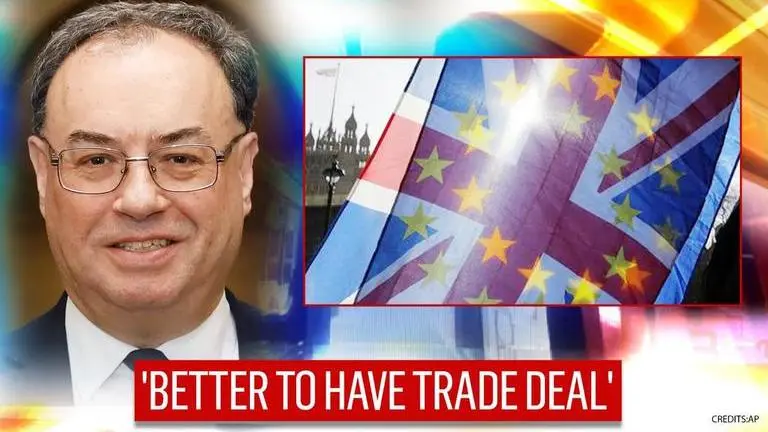Updated 25 November 2020 at 11:52 IST
Bank of England governor warns no-deal Brexit would cost more than COVID-19
Bank of England Governor Andrew Bailey warned that the economic cost of a no-deal Brexit would be bigger in the long term than the damage caused by COVID-19.
- World News
- 3 min read

Bank of England Governor Andrew Bailey recently warned that the economic cost of a no-deal Brexit would be bigger in the long term than the damage caused by the unprecedented coronavirus pandemic. While responding to a question from a lawmaker on what would happen if the UK government does not complete a deal before the December 31 deadline, Bailey said that he thinks the “long-term effects would be greater than the long term effects of COVID”. He added that, however, it would be better to have a trade deal and there is “no question about it”.
As Brexit transition expires at the end of December, Bailey said that failure to agree to a deal would cause disruption to cross-border trade and damage the goodwill between London and Brussels needed to build a future economic partnership. Speaking to MPs on the Commons Treasury committee, he added that it takes a much longer period of time for what he calls the “real side of the economy” to adjust to the change in openness and to change in profile in trade.
Previously UK chancellor Rishi Sunak said that Britain should not accept a deal with the EU at any price, insisting that the virus outbreak posed a much greater threat to the economy that a no-deal scenario. However, Bailey on November 23 said that it was in the “best interest of both the sides” for there to be a trade agreement.
Advertisement
Brexit negotiation
Meanwhile, with little more than a month before the transition period ends, a trade deal between London and Brussels is close to being finalised. However, officials have repeatedly warned that the risk remains of an accidental no deal if compromises cannot be reached. The negotiators have been trying to hammer out a deal that will allow for tariff-free trade to continue. But as the progress has been slow, the chief EU negotiator Michel Barnier warned that “fundamental differences” still need to be resolved.
Advertisement
The UK business groups, on the other hand, have been pushing PM Boris Johnson to secure a deal, saying that several companies have been stretched to the breaking point by the pandemic and another round of lockdowns. Without EU deal, Britain-based firms face hefty tariffs, quotas and other barriers to doing business with the country’s biggest export market starting on January 1.
The United Kingdom wants to take back control of its water, however, the European Union is seeking access as most of its ships fish in the English waters 89-90 per cent of the time. But negotiations have hit a speed-breaker because the UK sells the majority of its fish exports to the EU and the bloc is threatening to impose tariffs if it doesn't allow its vessels to fish in the English waters. It is said that the British Prime Minister Boris Johnson is adamant on a "better deal" for the United Kingdom, even though it means a no-deal outcome.
Published By : Bhavya Sukheja
Published On: 25 November 2020 at 11:54 IST
